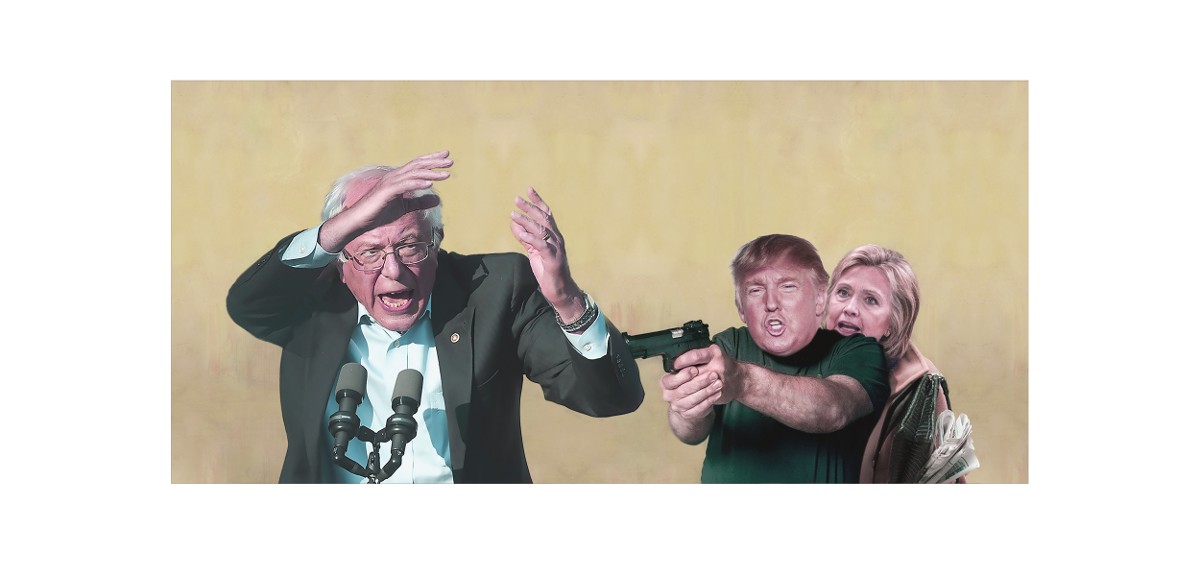“You can discover more about a person in an hour of play than in a year of conversation.” Plato
“Totalitarianism in power invariably replaces all first-rate talents, regardless of their sympathies, with crackpots and fools whose lack of intelligence and creativity is still the best guarantee of their loyalty.” Hannah Arendt

Wow. Those are two wildly divergent quotes. Hopefully, by the end of this post, they will both make sense.
One could say that I have been a bit obsessed with leadership and learning for most of my life. A quick search of this blog will turn up essays on spiritual leadership and ethical leadership, as well as articles on leadership values, leadership qualities, leadership potential, leadership dimensions, leadership profiles, leadership lexicon, leadership assessment, and leadership myths and realities. If you want to revisit any of those topics, here are the links:
Spiritual Leadership | Ethical Leadership | Leadership Values | Seven Essential Qualities of Leadership | Assessing Leadership Potential | The Three Dimensions of Leadership | The Seven Dimensions of Leadership Assessment | Profiles in Leadership | Leadership Lexicon | Leadership Myths and Realities
After all that ponderous pontification, I finally came to the conclusion that great leaders can be distinguished by three simple characteristics: humility, honesty, and humor.
A review of the literature on which three characteristics best predict great leadership results demonstrates that there is no unified theory on this subject. Some of the most common attributes identified were extraversion, communication, integrity, emotional intelligence, and energy.
My choices are based on my experiences working with hundreds of leaders over the course of my career.
Let’s start with humility.
To me, humility means to be constantly curious, to acknowledge the limitations of your knowledge and expertise, and to be open to questions that might reveal blind spots. A leader who practices humility has the courage to ask:
- What are we afraid to voice, or are we not saying aloud?
- Whose voices are we not hearing?
- Which of our assumptions are untested?
- What are we missing?
- What questions should we be asking that we are not asking?
- Where should we be more curious?
- Where could we benefit by a little more humility?
- How are we being naïve about our hopes, dreams and aspirations?
- Where could we be more courageously innovative?
- What are we doing that causes people not to entirely trust us?
- How could we do a better job of creating safe spaces for people to share different points of view?
- What processes do we have in place to ensure we are self-correcting on a regular basis?
- What conditions are causing us to sub-optimize?
- Where are we falling short on our standards?
- How could we be sharing power more effectively?
- How could we improve the ways in which we collaborate?
Humility, first and foremost, allows a leader to recognize their own limitations and the value of others’ contributions. It dismantles the pedestal of authority, replacing it with a sense of partnership. Humble leaders actively seek input, acknowledge their mistakes, and readily share credit, fostering a culture of collaboration and mutual respect. This not only strengthens team cohesion but also encourages innovation by empowering individuals to voice their ideas without fear of judgment.
Let’s turn to honesty. To me, honest leadership, like honest history, means to courageously confront your role in problems that have occurred. Leaders who consistently demonstrate integrity and transparency build trust among their followers. Honesty goes beyond simply telling the truth; it encompasses open communication, ethical decision-making, and a willingness to be vulnerable. By acknowledging challenges and admitting shortcomings, honest leaders create a safe space for others to do the same. This transparency fosters accountability and allows for more effective problem-solving as individuals feel comfortable addressing issues head-on.
Finally, a touch of humor can be a surprisingly powerful tool in a leader’s arsenal. Humor disarms tension, humanizes the leader, and creates a more positive and engaging work environment. It can help to diffuse difficult situations, build rapport, and boost morale. Importantly, humor should never be used at the expense of others; rather, it should be employed thoughtfully to foster connection and levity.
The interplay of these three traits creates a dynamic and effective leadership style. Humility ensures that leaders remain approachable and open to feedback, honesty fosters trust and accountability, and humor injects positivity and resilience into the team. Leaders who embody these characteristics are not only more likely to achieve their goals but also to cultivate a thriving and supportive environment where individuals feel valued and empowered to contribute their best. In a world that often prioritizes self-promotion and unwavering confidence, it is the humble, honest, and humorous leaders who truly stand out, inspire those around them, AND get things done.
And here we are, facing four more years with a complete narcissist with no sense of humor and who can’t stop spewing lies as the leader of the free world. To add salt to the wound, he has appointed the richest man in the world to find “efficiencies” in government. Now we have two of the richest and most powerful white men teaming up create their own definition of freedom. They picked the perfect acronym (DOGE) to describe this extra-governmental group that Musk will lead (Ramaswamy has no chance of having his voice heard). While they use different words for each letter of the acronym, I have broken the code. It means: Dominate, Oppress, Grift, and Exploit. Trump wins the prize as the most humorless, Musk is the king of hubris, and neither cares a hoot about honesty. The oligarchs love them because they will reduce taxes, weaken regulations, and cut heads. In short, they will give the richest among us the freedom to roam as they see fit. The 1% will end up owning an even larger share of the wealth. There you have it.
If Hannah Arendt only knew how prescient she was when she wrote: “Totalitarianism in power invariably replaces all first-rate talents, regardless of their sympathies, with crackpots and fools whose lack of intelligence and creativity is still the best guarantee of their loyalty.” The crackpots and fools Trump has appointed so far makes me shudder. There is no humility, honesty, or humor in those appointments. For a more balanced appraisal, listen to the Ezra Klein podcast: “In this house, we are angry when Government fails.”
It’s no wonder I went searching for books that would help me transcend this madness.
Fortunately, I came across two that were salve for my soul. The first, Your Brain on Art: How the Arts Transform Us by Susan Magsamen, Director of the Mind Lab at Johns Hopkins University School of Medicine and Ivy Ross, VP Design at Google, covers a wide range of research showing the impact of the Arts on our learning. One study that stood out to me explains why the brain loves humor. The reason is simple: humor upends our careful predictions about what might happen next or what should happen next. Humor stimulates the brain’s circuitry and elevates dopamine levels. In short, people learn better and generate better ideas when they are laughing. It’s pretty simple, people learn from people they like and who make them laugh. It makes sense that leaders who have a sense of humor produce greater results because the people in the organization are continuously learning and constantly generating new ideas.
It was in this book that I came across the quote by Plato:
“You can discover more about a person in an hour of play than in a year of conversation.”
The quote took me back to my days in jail rehab when the staff would play basketball with the inmates after classes had concluded. In four years of these games, in which the individual inmate skill level far exceeded staff basketball skills, we never lost a game. Why? Because we played together as a team and leveraged each other’s strengths, while the inmates tried to dominate us with their individual prowess and, in the process, revealed more about who they were than we learned in hours and hours of counseling sessions. The lesson:
People reveal who they really are when they are playing.
The second book was The Amen Effect: Ancient Wisdom to Mend our Broken Hearts and Words by Sharon Brous, founder of IKAR in Las Angeles. Brous is described as one of the most influential Rabbis in the country. Here are some of the passages from the book that struck me:
“If we are paying attention, every moment is pregnant with both pain and possibility.”

Humble leaders pay attention. They notice when people are struggling and they are always seeking opportunities to nurture potential.
“It is in our brokenness that beauty and truth are revealed.”
Honest leaders acknowledge that all of us have experienced being broken at some point in our lives. It is during those times that we tend to be most vulnerable and open.

As Leonard Cohen sang in his Anthem album in 1992, “There is a crack in everything, that’s how the light gets in.”
“There is nothing more wholesome than a broken heart.” Paradoxically, it is when we experience having our hearts broken that we can find our way back to wholeness. Hopefully, with a little humor, we will be able to find our way back in four more years.
“We are suffering from two forces in America: alienation and tribalization.” Amen and Amen. People are feeling more alienated than ever and are retreating to the security of their respective tribes. We need to see and understand more deeply the reasons people are experiencing these feelings and how social media is reinforcing the hunkering down, the bunkering in, and the numbing up to new possibilities.
What all of this says to me is that, while qualities like decisiveness and vision are undeniably important, it is the often-overlooked character trifecta of humility, honesty, and humor that truly empowers leaders to connect, inspire, and ultimately succeed. These traits create a fertile ground for trust, growth, and resilience within a team or a nation, fostering an environment where individuals feel valued, motivated AND safe to engage in healthy conflict.
In Leadership Lexicon, we propose four layers of leadership: character, commitment, capability, and capacity. Character is the foundation on which great leadership is built. Commitment means a willingness to work hard and persevere. Capability means the ability to work smart and solve problems. Capacity is defined by intellectual horsepower and emotional bandwidth – the readiness to tackle complex and ever-changing, system issues. All four layers are necessary for truly great leadership, but without a solid foundation, it all falls apart.
I’m hoping a new generation of leaders will have the humility to own their limitations, discard their need for hegemony, and hold on to their curiosity. I’m hoping they will be honest about their role in problems, be willing to be vulnerable, be committed to creating safe spaces, and to act with integrity. Finally, I’m hoping these new leaders will have a sense of humor and be able to create positive and humanizing work environments in which people feel connected to a higher purpose. May it be so.
Also published on Medium.



Thank you lad!
Hear freakin’ hear, Rick! Well said and your timing is just right. Thank you.